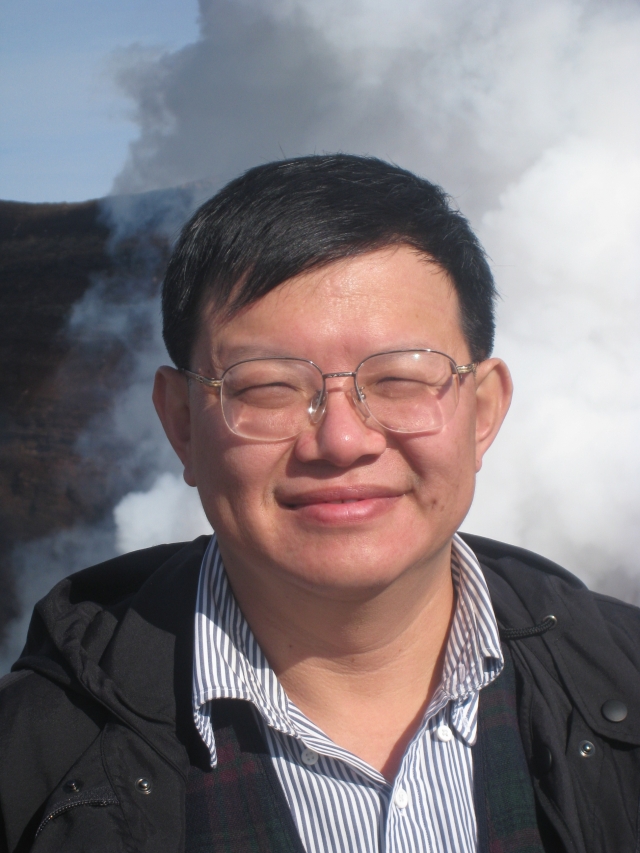
时间: 10月14日(周一),下午2:30-3:30
地点: 无线谷A1319会议室
报告题目: Machine Learning Radio Resource Management for Future Cellular Mobile Networks
报告人:Li-Chun Wang,IEEE Fellow
主办:yl23455永利官网移动通信国家重点实验室
Abstract:
We are witnessing the transition into the fifth generation (5G) cellular mobile systems. Is there any need for beyond 5G? A significant change in recent wireless networks is that much more data are collected from various sources, including channels, locations, radio access options, and network states. The availability of this large amount and various types of data can potentially transform the current knowledge-driven mobile network into a more powerful data-driven cognitive and learning-assisted mobile network.
In this talk, we discuss how machine learning algorithms can address the performance issues of high-capacity ultra-dense small cells in an environment with dynamical traffic patterns and time-varying channel conditions. First, we introduce a bi-adaptive self-organizing network (Bi-SON) to exploit the power of data-driven resource management in ultra-dense small cells (UDSC). On top of the Bi-SON framework, we propose a polynomial regression supervised learning, and an affinity propagation unsupervised learning algorithm to improve energy efficiency and reduce interference of the operator deployed and the plug-and-play small cells, respectively. Finally, we discuss the opportunities and challenges of reinforcement learning and deep reinforcement learning (DRL) in more decentralized, ad-hoc, and autonomous modern networks, such as Internet of things (IoT), vehicle-to-vehicle networks, and unmanned aerial vehicle (UAV) networks.
Biography:
Li-Chun Wang (M'96 -- SM'06 -- F'11) received Ph. D. degree from the Georgia Institute of Technology, Atlanta, in 1996. From 1996 to 2000, he was with AT&T Laboratories, where he was a Senior Technical Staff Member in the Wireless Communications Research Department. Since August 2000, he has joined the Department of Electrical and Computer Engineering of National Chiao Tung University in Taiwan and is jointly appointed by Department of Computer Science and Information Engineering of the same university.
r. Wang was elected to the IEEE Fellow in 2011 for his contributions to cellular architectures and radio resource management in wireless networks. He won the Distinguished Research Award of National Science Council, Taiwan (2012). He was the co-recipients of IEEE Communications Society Asia-Pacific Board Best Award (2015), Y. Z. Hsu Scientific Paper Award (2013), and IEEE Jack Neubauer Best Paper Award (1997). His current research interests are in the areas of software-defined mobile networks, heterogeneous networks, and data-driven intelligent wireless communications. He holds 23 US patents, and have published over 300 journal and conference papers, and co-edited a book, “Key Technologies for 5G Wireless Systems,” (Cambridge University Press 2017).
Related Publications for this talk:
[1] Li-Chun Wang and Shao-Hung Cheng, “Self Organizing Ultra-Dense Small Cell in Dynamic Environments: A Data-Driven Approach,” IEEE Systems Journal, pp. 1-12, Jun. 2018
[2] Li-Chun Wang, Shao-Hung Cheng, “Data-Driven Resource Management for Ultra-Dense Small Cells: An Affinity Propagation Clustering Approach,” IEEE Transactions on Network Science and Engineering, May. 2018 : DOI 10.1109/TNSE.2018.2842113
[3] Y. J. Chen, W. Y. Cheng, and Li-Chun Wang, “Learning-assisted Beam Search for Indoor mmWave Netowrks,” IEEE Wireless Communications and Networking Conference, Apr. 2018

